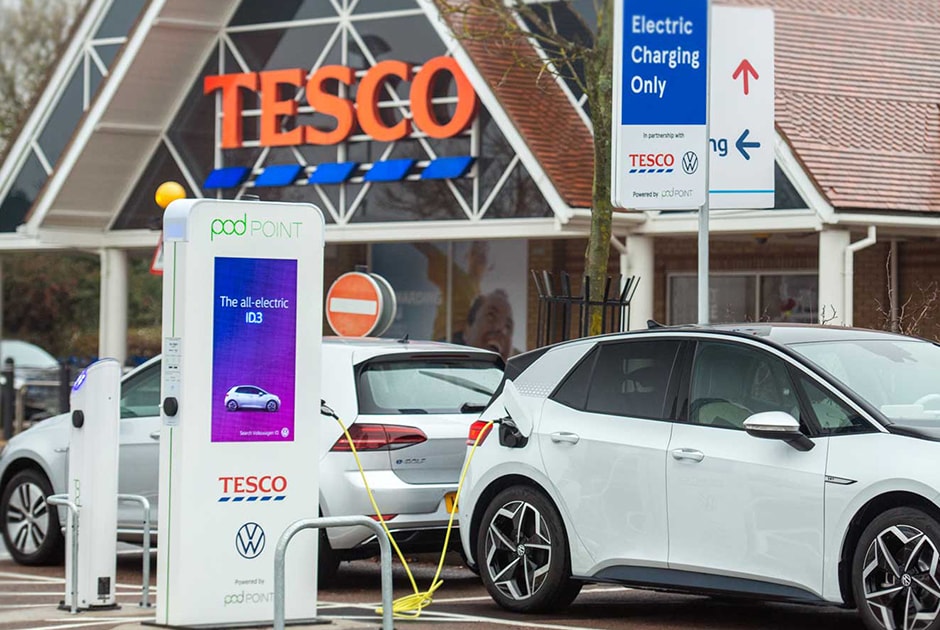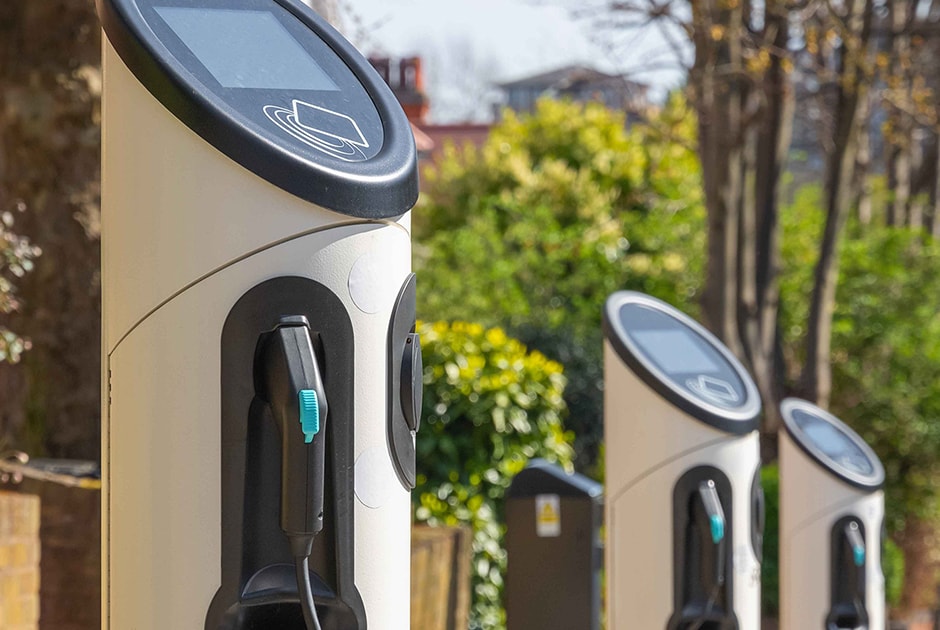January 2020 marked the dawn of a new decade, but little did we realise what the coming years would bring. The clock is ticking on climate change, but the unexpected impact of COVID-19 suddenly brought all of our priorities into stark relief. With the world on pause, the opportunity to press the re-set button has led to a rapid realignment of our goals and ambitions. From how we operate and do business, to how we implement new low-carbon technologies and moderate our own behaviour, the changes we make over the coming decade will be decisive in more ways than one.
Responding to the challenge of climate change

It has been nearly three years since the Intergovernmental Panel on Climate Change (IPCC) published its report on global warming, looking at the impact of a rise in temperature of just 1.5 degrees. Meanwhile, the cost of key technologies continues to fall, and the Committee on Climate Change’s (CCC) Sixth Carbon Budget report sets out what can be achieved through joined up collective action. The next few years will be pivotal in the race against climate change.
Of course, we all know this. But when it comes to practical steps, we need to work together to take action. We are at a unique moment in time when the pendulum could swing either way, and the impact of measures implemented now will reverberate long into the future.
Let’s consider the collective response to the global pandemic as an example. It has been a demonstration of resilience, ingenuity and the power of public and private sector collaboration. We will look back and recognise that not everything we tried worked out as expected, but the willingness to experiment, test solutions and respond means we can, at this moment, see a light at the end of the tunnel. The global community was able to turn to leading experts, healthcare professionals and key workers who had the knowledge, innovation and drive to respond when called upon. Imagine if we could apply this same collective action to the climate crisis?
The Sixth Carbon Budget sets a target of 78 per cent reduction by 2035 for the UK. A global community of innovators, entrepreneurs and intrapreneurs have been working on this societal challenge, seeking to bring solutions for both the government and private sector. We need to take inspiration from the global response to the pandemic and make the next ten years count in determining our future for the long term.
Sustainability in the built environment

This long-term outlook is particularly important when it comes to delivering large scale buildings and infrastructure projects. Not only can these take many years to bring to fruition, but their extensive lifespan means they will be with us well beyond 2050. As we focus on what a post-COVID economic recovery will look like, it provides the ideal opportunity to embed real, lasting change.
From placemaking and the masterplanning of new homes and communities, to how we design and use new and existing infrastructure, there is an opportunity for the UK to lead the way when it comes to measures that will support change. Whether that’s rolling-out new carbon capture and storage technology, installing low-carbon heating, or putting in place the infrastructure needed to support the full switchover to electric vehicles, we need to demonstrate as an industry that we are prepared to go further and faster towards achieving our zero-carbon goals.
This is something that we have been working towards with a number of our clients. Recently, we have been working with Tesco to help install the largest retail electric vehicle charging network in the UK.
Equipping 400 stores nationwide with new electric vehicle charging bays will mean that millions more people can conveniently access charging points all around the country.
We have also been working on High Speed Two (HS2), the largest infrastructure project in Europe, to help minimise carbon emissions as the new railway line is built. Our design interventions mean that forecast carbon emissions have been reduced by over 40%. Not only that, we are also looking at how we can maximise biodiversity along the route. Our design improvements are such that we are now predicting a 3.7% gain in area-based habitats and a 22.5% gain in linear habitats along the 80km section between London and Birmingham that we are working on.
Collective action

The UK Government has been decisive in setting out plans and regulatory policies. It was the first major economy to enshrine in law a commitment to reach Net Zero carbon emissions by 2050 and, over the next decade, we need to be able to deliver on that ambition.
This is a practical challenge, calling for professional teams who can integrate innovation and manage programme and cost, so that we can meet this challenge on time, and utilise budget effectively to achieve the scale of transformation needed. We will need to use new digital tools and technologies that enable effective decision-making, and continually identify new ways to engage supply chains through new models of procurement. We need to make every penny count and continue to experiment, learn fast and accelerate the deployment of what works.
Our built environment has for generations delivered socio-ecomic growth and been the bedrock of advancement. It is now the bottle neck in achieving global sustainability. Over the next 30 years the built environment will transition from activities that emit green house gases, cause biodiversity loss, create losses in material value and support only parts of our communities; to a Net Zero carbon, circular and regenerative environment that supports a stronger and more resilient society.
To meet the challenge and make this decisive decade count, sustainability needs to be at the forefront of any approach. It needs to inform how decisions are made and implemented, and will impact everything from the investment case and design through to build and operation. As an industry, we are undertaking this journey together, and we need a whole supply-chain approach when it comes to understanding future policy direction and how we can collectively respond to sustainability challenges.
Embedding sustainability

As technology continues to evolve – and the cost of implementation falls – we are at a point in time when the industry needs to build momentum. Taking a cross-sector approach here will pay dividends when it comes to ramping-up the pace of change. Every step taken by one organisation is an opportunity for another. When one sector innovates, we are all able to reduce our footprint. This is true in a practical sense, for example when it comes to the electricity grid or transport decarbonisation, but it is also true when it comes to shared learning, reduced costs of shared technologies and public and professional acceptance and adoption. As we race to net-zero we will all need to take advantage of the ideas and innovation that have come to maturity, building on and improving new technologies for the benefit of the entire built environment – and beyond.
However, adopting low carbon solutions is not just about technology; the individual experience is critical. When it comes to regulating our own behaviours, it needs to be natural – engaging individuals on a personal level.
We don’t yet have all the answers, but a willingness to work towards a joint goal, sharing best practice and building on collective innovation will determine the course of the next decade. With the 26th UN Climate Change Conference taking place in November in Glasgow, the eyes of the world will be upon us. This is a critical time for the Government to review its commitments. If we don’t scale-up and start to realise our ambitions, we could be facing a climate breakdown. This is a real chance to embed sustainable, long-lasting change and, from the broadest aspirations to the most practical applications, the actions we take now will decide the shape of our future.
Speak to our climate change experts
Wherever you are on your Net Zero journey, share your thoughts and let us know how we can help.








